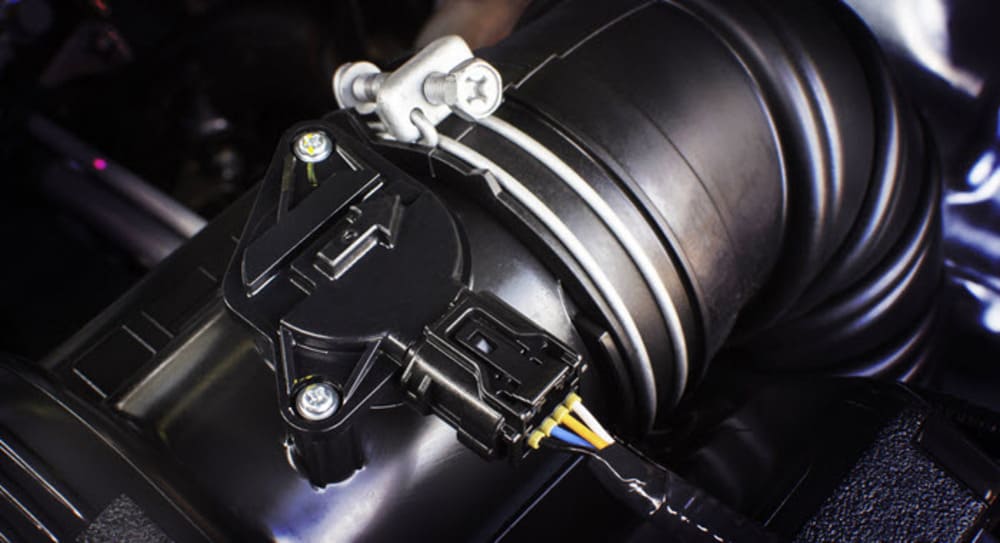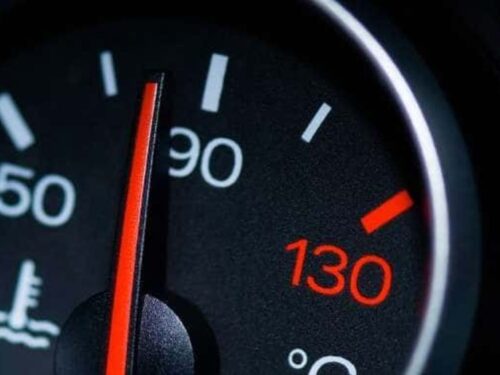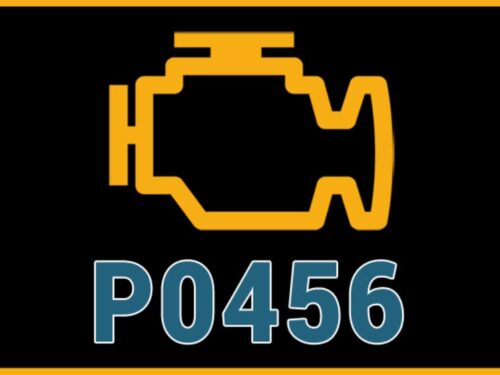
WHAT IS A MASS AIR FLOW SENSOR?
The mass air flow sensor (MAF) is a key component of the electronic fuel injection system in a car. It is located between the air filter and the engine’s intake manifold. In some cars, the intake air temperature (IAT) sensor is built into the mass air flow sensor. However, there are various types of air flow sensors and all require different maintenance. Digital sensors send a frequency output, while analog mass air flow sensors produce a variable voltage output. Both outputs are sent to the engine control module to help regulate air-fuel mixture in the car’s automatic transmission system.
WHAT DOES IT DO?
Mass air flow sensors measure the air mass flowing into the engine intake. This is important for calculating the amount of fuel to add to achieve the proper air-fuel ration (AFR), Ideal AFR is 14.7:1 (14.7 lb of air to 1.0 lb. of gasoline), but AFR can vary. Acceleration requires AFR of up to 12:1, while cruising requires levels as low as 22:1. A faulty mass air flow sensor can make it difficult or impossible for the engine control module (ECM) to calculate fuel injection correctly. This can cause a myriad of other problems for your vehicle.
SYMPTOMS OF MASS AIR FLOW SENSOR FAILURE
Over time, your mass air flow sensor can degrade and become prone to failure. This is due to the fact that it is constantly exposed to moving air, which is full of exhaust fumes, debris, and dust. Even becoming too dirty can cause it to stop working, so it’s important to have a local mechanic take a look if you notice any of the following symptoms in your vehicle’s performance. In many vehicles, especially those made by Toyota, flow sensors built into the compressor have a high rate of failure. A bad air flow sensor may show as code B1479 when scanned by an automotive repair specialist.
Check Engine Light
The most common sign of mass air flow sensor failure is a lit-up check engine light. Regardless of whether there are any other signs of an issue, you should have your car checked out by your local mechanic if the light comes on. It could potentially signal a damaged or faulty mass air flow sensor.
Jerking and/or Hesitation
If you are noticing unusual hesitation and/or sudden abnormal jolts of power, this can be a sign of mass air flow sensor problems. This may happen while speeding up on the highway on-ramp or cruising down a street at regular speed. Operating a car this way is extremely dangerous, so it is important to have an auto repair expert take a look as soon as possible.
Misfiring/Rough Running
Without a proper signal from the mass air flow sensor, the powertrain control module (PCM), which manages the engine, transmission, and other systems in your car, won’t know how much fuel the engine needs. This can either cause the engine to run too lean (too little fuel) or too rich (too much fuel). The result is an incomplete combustion process, which can lead to rough engine running and misfiring.
Lean Idling
If your car seems to be struggling for power and stalling a lot, it may be getting too much air in the engine and too little fuel. This can cause the combustion process to fail, which is often affected by dirty buildup on the wires in the mass air flow sensor. A local automotive maintenance professional can get the wires back into working condition for you.
Black Exhaust Smoke
Lots of exhaust smoke coming from your car is probably a sign that something is wrong. While it can be the result of a few different issues, it could mean your mass air flow sensor is damaged, causing the engine control model to calculate improper fuel injection, resulting in black smoke.
Difficulty Starting/Turning the Engine Over
If you are having trouble starting your car or getting the engine to turn over, the air-fuel mixture might be off balance. All vehicles are very sensitive to proper air-fuel mixture and may have difficulty starting if it is thrown off by a bad mass air flow sensor. If you are experiencing this, you should take your car to an auto repair shop as soon as possible.
Poor Fuel Economy
If you’ve noticed your car suddenly needs more fuel than usual, this could be a sign of a serious issue. A fault mass air flow sensor might be sending inaccurate information to the powertrain control module (PCM), which can cause the vehicle to burn through fuel much more quickly than it should.
Courtesy of hollenshades










